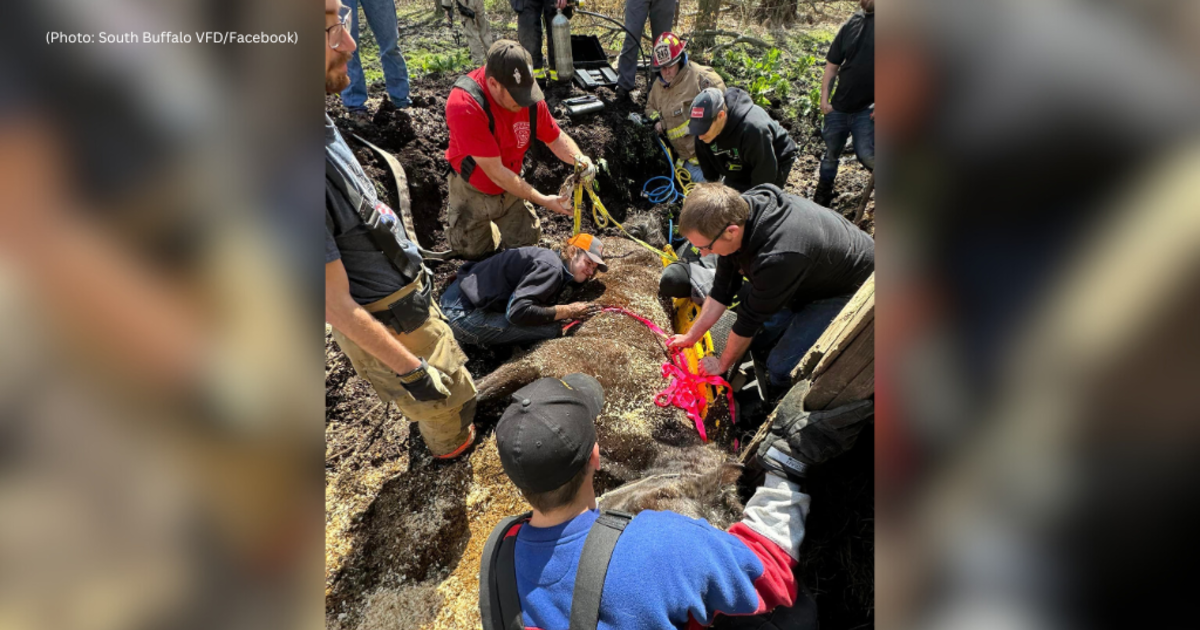KDKA Investigates: New Major Health Crisis Facing America's Military, Some Say
PITTSBURGH (KDKA) -- When the planes hit the Twin Towers in New York City, they answered the call. In Afghanistan and Iraq, veterans put themselves on the front lines.
Justin Moore, of Brentwood, served in both countries as a paratrooper and machine gunner in some of the worst firefights in the War on Terror.
"I was infantry. I was combat MOS and doing the down and dirty front lines stuff," Moore said.
Back stateside, Moore contends with the after effects of war, including post-traumatic stress and brain injury from exploding mortars and IEDs.
But Moore believes he's also been damaged by what he thought at the time was a routine maintenance duty, tending to the massive trash fires called burn pits.
"That's how we disposed a lot of our stuff. Throw it in a pit, throw diesel on it and burn it. I couldn't tell you exactly what was thrown in there," said Moore.
Human and medical waste, plastic water bottles and explosives - anything and everything went into those pits - all doused with diesel fuel and set on fire. Moore and others believe they're now paying the price.
Join The Conversation On The KDKA Facebook Page
Stay Up To Date, Follow KDKA On Twitter
"To give you an example, when I came back from Iraq, about three weeks later, I had the most intense pain ever. I had these migraines that would just put you on the floor," Moore said.
Returning vets throughout the country suspect their exposure to the burn pits has resulted in respiratory and other more serious diseases, like cancers.
"I started having breathing problems. I had a heck of a time adjusting when I came back. We were doing PT and things and I couldn't breathe," Shawn Schrag, another veteran, said.
Schrag tended to the pits several times a week in Iraq without a gas mask or any protective clothing, breathing in the thick, dark, toxic smoke several times a week.
"No protective equipment at all," he said.
Initially, the Pentagon and the VA cited studies showing little evidence that the burn pits posed long-term threats to health. But in the past few years, other research links the burn pits to a myriad of health problems.
"She got up for work one Sunday morning and said, 'I can't get out of bed.'"
Bethany Ariel Bugay served as a reserve medic in Iraq and supervised the burn pit crews. When she returned to West Mifflin and her husband john and six children, Bethany fell ill with leukemia.
Now a widower and a single father, John Bugay believes she contacted the disease through her exposure to the burn pits.
John Bugay: The military said there's no direct correlation between that process and her illness.
Andy Sheehan: But you don't believe that.
John Bugay: I don't.
The surviving vets compare the burn pits to Agent Orange, the defoliant used in Vietnam that caused cancer in returning soldiers, though the government was slow to acknowledge a connection.
"I've met with Vietnam veterans who've had every organ shut down because of Agent Orange they experienced, and just like them they didn't have any clue what was sprayed upon them I didn't have any clue what I was burning."
For now, the VA maintains it can not establish any connection between the burn pits and any specific medical problem or disease. Though, they do concede that they really don't know at this point.



